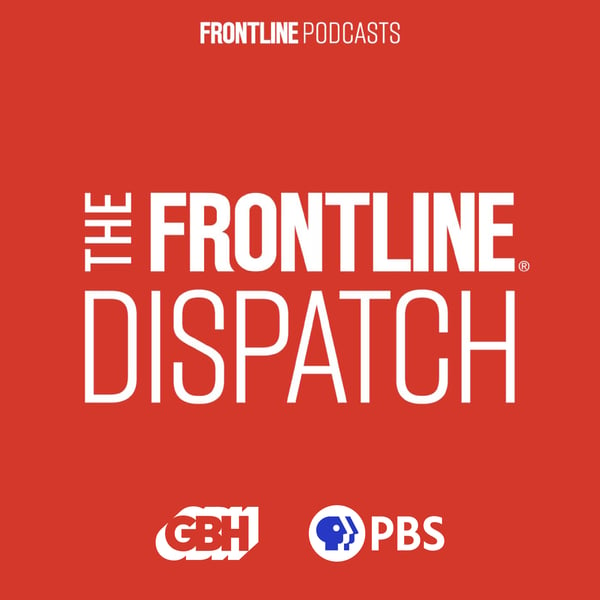After Hurricane Helene, Are We Ready for the Next Big Storm?
The FRONTLINE Dispatch
GBH
4.6 • 1.1K Ratings
🗓️ 6 June 2025
⏱️ 23 minutes
🧾️ Download transcript
Summary
Last fall, Hurricane Helene tore through multiple states, leaving millions without power, billions of dollars in damage, and more than 200 people dead.
In the days that followed, NPR correspondent Laura Sullivan and a team from FRONTLINE began reporting on the ground in Western North Carolina, one of the hardest-hit areas — despite being inland and elevated far above sea level. Over the course of several months, the team documented the community’s early attempts to recover and debates around how to build back.
Hurricane Helene’s Deadly Warning is the latest in a series of films from FRONTLINE and NPR on storms and their aftermath. Drawing on more than a decade of collaborative reporting, the documentary examines the difficult choices facing communities impacted by disasters, and the country’s growing vulnerability to climate-fueled storms.
Sullivan and the film’s director, Jonathan Schienberg, join FRONTLINE executive producer and editor-in-chief Raney Aronson-Rath to talk about what they saw in North Carolina, why they returned to the sites of earlier storms, including Houston and New York, and the tensions surrounding efforts to rebuild.
Sullivan’s reporting pointed her to what she calls “the overall” questions on disaster response: “Why after 20 years since Katrina, are we still standing in these devastated places wondering how did this happen? And how did it happen here? And why are so many people dead? And that's when we started asking, is there a way to do this differently?”
You can watch Hurricane Helene’s Deadly Warning on FRONTLINE’s website, FRONTLINE’s YouTube channel, and the PBS App.
Want to be notified every time a new podcast episode drops? Sign up for The FRONTLINE Dispatch newsletter.
Transcript
Click on a timestamp to play from that location
| 0:00.0 | Last September, Hurricane Helene tore through six states, leaving over 200 people dead and billions of dollars of damage. |
| 0:10.0 | In the mountains of North Carolina, entire towns are swamped, buried under mud and debris. |
| 0:16.0 | Parts of Western North Carolina in and around Asheville, hit with what officials are calling biblical devastation. |
| 0:21.6 | We always thought that because we was in the mountains, that it wouldn't happen. |
| 0:26.6 | And the days after the storm, NPR correspondent Laura Sullivan and a team from Frontline were on the ground in some of the hardest hit areas of Western North Carolina. |
| 0:36.6 | We watched whole houses just crumbling. |
| 0:39.3 | Go down the river, trucks turn the end over in. |
| 0:41.5 | Do you feel like it was a safe place to live? |
| 0:43.9 | Oh, yeah. |
| 0:45.1 | Hurricane Helene is the latest and more than a decade of collaborative reporting |
| 0:49.3 | on storms in their aftermath with NPR. |
| 0:51.8 | And as we report in our new documentary, |
| 0:55.0 | Helene served as a vivid sign of the country's |
| 0:57.0 | growing vulnerability to climate-fueled storms. |
| 1:01.0 | What we thought we knew doesn't exist. |
| 1:03.0 | And the challenges communities face as they try to recover and rebuild. |
| 1:08.0 | Businesses need to reopen and jobs need to be created again. |
| 1:11.9 | The film is called Hurricane Helene's Deadly Warning. |
| 1:15.2 | Laura Sullivan and director Jonathan Scheinberg join me to discuss the documentary. |
| 1:20.2 | I'm Rainie Aronson Roth, editor-in-chief and executive producer of Frontline, and this is |
| 1:25.1 | the Frontline Dispatch. |
| 1:39.1 | The Frontline Dispatch is made possible by the Abrams Foundation, committed to excellence in journalism and by the Frontline Journalism Fund, with major support from John and Joanne Hegler. |
... |
Please login to see the full transcript.
Disclaimer: The podcast and artwork embedded on this page are from GBH, and are the property of its owner and not affiliated with or endorsed by Tapesearch.
Generated transcripts are the property of GBH and are distributed freely under the Fair Use doctrine. Transcripts generated by Tapesearch are not guaranteed to be accurate.
Copyright © Tapesearch 2025.

